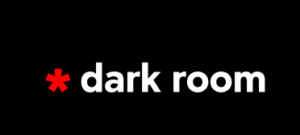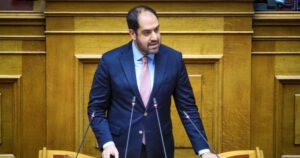Greetings! So, the die is cast, and the new President of the Republic will be Kostas Tasoulas, who was a front-runner from the beginning.
Clearly, Mitsotakis considered the traditional approach of selecting someone from the broader “opposing camp” for the highest state office, but he refrained for one main reason, which I will share with you exactly as a top source relayed it to me:
“K.M. did not want to give society, and especially the party’s base, the impression that we are building, step by step, a co-governance agreement with PASOK for 2027, using a bridge like President Venizelos if he were chosen. This would not benefit the government moving forward because it would create the impression that New Democracy cannot devise its own strategy and is contemplating alliances with a party like PASOK, which leans toward the Left, at a time when the global trend is shifting more conservatively.”
All of this, I should add, were arguments voiced after the choice of Tasoulas and the rejection of a center-left figure by the Prime Minister.
The Tasoulas-Mitsotakis Meeting
For days, Tasoulas had known about Mitsotakis’ proposal, had agreed to it, but was anxious that some “curveball” might change the plans along the way. For this reason, he remained tight-lipped, though he would occasionally discuss with confidants the number of MPs and under what conditions they might vote for him. He met K.M. outside of the Maximos Mansion on Saturday to finalize things—after all, Mitsotakis had casually asked him at Simitis’ funeral if he would be in Athens over the weekend. Tasoulas himself, however, would tell acquaintances that he had been in Ioannina for two days on an unpleasant obligation.
Gerapetritis’ Proposal
Mitsotakis’ reference to the ND proposal that the President of the Republic should be elected only once for a six-year term bears the “stamp” of Giorgos Gerapetritis, who regularly discusses institutional matters with the Prime Minister. The Foreign Minister believes the role should be de-dramatized and disconnected from personal ambitions, as anyone serving would know they cannot extend their term. Interestingly, Stefanos Kasselakis also floated this idea days ago, presumably because he heard it discussed frequently in political circles during the Christmas holidays, as Mitsotakis’ decision loomed.
Today’s Amendment on Insurance Policies – Hospitals to Publish Price Lists
Today, Minister of Development Theodorikakos will submit to Parliament the amendment regarding the adjustment of premiums for long-term health insurance contracts. The amendment establishes an Annual Adjustment Index (AAI) for long-term health insurance, to be published by ELSTAT each December and implemented starting January 1, 2026. This does not apply to long-term policies without adjustment clauses or those with fixed premium adjustments.
A joint decision by the Ministers of Development, Finance, and Health—based on recommendations from ELSTAT and the Bank of Greece—will specify the indices, factors, or databases used to calculate the AAI. Additionally, the amendment mandates that insurance companies post premium increases on a dedicated webpage titled “Premium Adjustments.” Healthcare service providers are also required to publicly disclose the prices of their services, especially for each type of medical or nursing procedure, along with the percentage increase from the previous price. These disclosures must be formatted as a table on each company’s website under the title “Health Service Prices,” and they must include the service name, the current price, the date of the price adjustment, the previous price date, and the percentage increase. Announcements cannot be removed for at least ten days after publication.
Notably, following public backlash and intervention from the Ministry of Development, major insurers (e.g., Allianz, NN) announced a 7% increase instead of their initial 14% intentions.
Thessaloniki Port (OLTH), Part 1
Now, let’s move on to the commotion at Thessaloniki’s port. After the surprising move by the French billionaires of the Dreyfus family to acquire a stake in OLTH, Ivan Savvidis reacted by attempting to thwart their plan by driving up the share price on the stock market. Through their company, LeonidsPort, the wealthy business family offered €27 per share as part of a public proposal to acquire up to 21% of OLTH. However, on the Athens Stock Exchange, the price surged past that figure, closing yesterday at €28.20 and peaking at €28.80 during the session. Essentially, the offered price was surpassed almost immediately.
Who was buying? Among others, the Savvidis camp, which acquired shares of OLTH via Belterra Investments on January 13 and 14. Though the purchases were small (1,000 shares at €27.10 on Monday and 7,700 shares at €27.16 on Tuesday), the intent was clear: to complicate life for the French. Meanwhile, LeonidsPort managed to acquire just over 2.6% of OLTH. Their stated goal is to acquire a larger stake. The key question now is whether they will increase their offer, persuade other major shareholders to sell, or are already allied with one of them, as market rumors suggest.
Here’s the shareholder breakdown: Belterra Investments controls 72.51% of OLTH. Within Belterra, 4.85% is directly owned by Nikos Savvidis, and the remaining 67% is held by South Europe Gateway Thessaloniki (SEGT). In SEGT, the Savvidis group owns 67%, and the French operator CMA CGM owns 33%. Thus, the Savvidis group controls over 49.6% of OLTH, the French 22.3%, the Hellenic Republic Asset Development Fund (HRADF) 7.27%, and the rest is free-floating.
Thessaloniki Port (OLTH), Part 2
What will the French do now? LeonidsPort’s public proposal stated that the offered €27 per share is the final and maximum price they intend to pay for acquiring shares, with no plans to revise the terms. While such statements are often flexible, it remains to be seen whether the Dreyfus family will increase their offer.
As for Savvidis, his participation in OLTH came at a significantly higher cost—over €33 per share in total, first through the HRADF tender and later in 2021 via a public offer. Reliable sources say Savvidis received two serious proposals to sell his stake in the port, the most recent from Arab investors valuing OLTH at €400 million. However, he did not even respond, signaling that he is unwilling—or unable—to sell.
Belterra’s recent move clearly positions the two sides in opposition. What’s left? The French from CMA CGM, who reportedly no longer have the best relations with Ivan Savvidis and might welcome a change in Thessaloniki’s status quo. This story has plenty more to unravel, especially considering OLTH’s zero debt, its €100 million cash reserve, its annual dividend payouts, and, most importantly, its growing geostrategic significance in light of global developments involving the U.S., Ukraine, and more. Lastly, sources from the HRADF administration emphasize that there has been no approach from the Swiss.
Everyone Except Optima Bank
The Hellenic Development Bank has once again taken over the management of the “My Home II” program, with a total budget of €2 billion. This program is expected to enable 20,000 citizens to acquire their first homes under very favorable terms, including subsidized interest rates, sparking significant activity in the market. Banks are mobilizing their networks, issuing guidelines for clients, and gearing up to provide more housing loans. Real estate agencies are buzzing, compiling lists of recommended properties for potential buyers.
To facilitate participants, the Development Bank announced yesterday the banks it collaborates with: Alpha Bank, Eurobank, National Bank of Greece, Piraeus Bank, Attica Bank, and the cooperative banks of Thessaly, Epirus, Karditsa, and Chania. Optima Bank is the only one not participating—just as in the previous “My Home” program—because, as sources monitoring the program put it, they are simply not interested.
The Contractors and Projects of AIA
The TERNA REDEX consortium (Kopelouzos Group) is among those that submitted a bid, while METKA is also reported to have done so for the preliminary construction work on the €188 million expansion of Eleftherios Venizelos Airport. This is part of a broader €650 million construction plan designed by the Athens International Airport (AIA). The related tender was announced at the end of November and concerns the expansion of the terminal by 81,000 sq.m., as well as the construction of a multi-story parking facility adjacent to the Sofitel hotel. The deadline for submitting bids was January 10, and AIA aims to expedite the process and sign the contract, possibly within the month. The new apron will provide parking for 32 aircraft, while the parking structure will consist of 7 floors and a basement, accommodating 3,365 vehicles. The project is expected to be completed in the first half of 2027.
Metlen’s New Moves
Market rumors suggest that Metlen is preparing a new investment initiative, stirring significant interest. Over recent years, the company has experienced remarkable growth, both organically and through aggressive acquisitions. Everyone is now waiting to see what the group’s next move will be. Speculation abounds as to whether this will be another renewable energy project abroad—consistent with the outward-focused strategy the group has adopted—or a completely new investment initiative. The good news about Europe doesn’t stop there, as this time it also involves the company’s metals division! Before the stock market opens, we’ll learn how Greek production can also benefit the European market.
The Gaming Commission Left Without Leadership
The Hellenic Gaming Commission (EEEP) is one of Greece’s seven Independent Authorities. Due to its unique role (providing approximately €1 billion in revenue to the Greek state), it is also overseen by the Ministry of Finance. The term of EEEP President Dimitris Tzanatos ended on January 1, 2025. Since the presidency is a five-year term, the next appointment is considered particularly critical. Beyond routine issues (supervision of operators, advertising, etc.), several crucial matters are on the table, such as the future of land-based casinos (Parnitha, Elliniko, Patras, etc.), the new OPAP license (set for 2030 but with terms to be agreed much earlier), and the new five-year online licenses starting in 2027. So far, no official process has begun to renew Mr. Tzanatos’ term or select a new president. This is, however, an issue that must soon be resolved.
Thessaloniki’s New Business Park
Barely into 2025, final signatures were reportedly signed for yet another lease at HUB 26, this time in the food and beverage sector, at the new business park being developed in Thessaloniki by Ourania Investment S.A. (a joint venture between DIMAND and PRODEA Investments). This complex of four buildings, located at the western entrance of the city, boasts major domestic and international tenants such as Piraeus Bank, Alpha Bank, and the American company Taskus. A fifth building will house the new offices of the Black Sea Trade and Development Bank in a privately-owned standalone structure. The latest lease, which supports food and beverage operations at HUB 26, was signed last week by Dimitris Andriopoulos, head of DIMAND, with one of Thessaloniki’s prominent local entrepreneurs of German origin, who is active in and beyond the F&B sector. Notably, the entrepreneur operates out of one of Thessaloniki’s most iconic and well-known preserved buildings. HUB 26, an €80 million investment, was inaugurated last fall in the presence of Prime Minister Kyriakos Mitsotakis as the first large-scale bioclimatic business park in Thessaloniki and Northern Greece.
Europe Took a Breather, Athens Remained Cautious
The Athens Stock Exchange didn’t need the positive sentiment from European and U.S. capital markets to regain the psychological threshold of 1,500 points. Nor was it swept up by the general optimism that emerged after U.S. inflation announcements. The General Index reached 1,503.18 points (+0.67%) and stopped there, with €126.5 million in transactions, of which €28.29 million were in block trades. Alpha Bank and National Bank gained momentum from UBS’s report, narrowing the gap with Eurobank and Piraeus Bank. Alpha rose to €1.73 (+1.73%), and National Bank to €8.128 (+1.3%). The Viohalco Group kicked off the traditional New Year’s rally with its parent company at €5.79 (+1.4%), its subsidiary Cenergy at €9.93 (+1.22%), and ElvalHalcor impressing the market (+3.75%) at €2.215.
Ask me anything
Explore related questions





